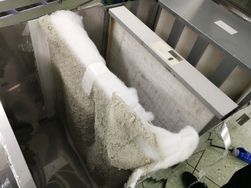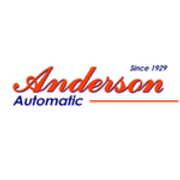5 Steps to Get Your Commercial AC Ready for Summer

Commercial HVAC systems are a substantial investment for businesses, and the summer heat and humidity can be rough on air conditioning units. The best way to avoid costly repairs or replacements is through routine preventive maintenance, which means an annual check is due. Follow these steps to prepare your facility’s HVAC system so it runs efficiently this summer.
How to Prep Your Commercial HVAC System
1. Shut Down the System
Before you begin any cleaning, maintenance, or tests of the air conditioner’s function, turn off the power to the equipment. The circuit breaker inside the service panel should shut off the power to the condenser. Wait 30 minutes or more before moving ahead with your preparation tasks.
2. Check the Ductwork
It’s not uncommon for ductwork to shift over time, thanks to subtle movements caused each time your system cycles on and off. Ducts can come loose and develop small leaks, leading to significant air loss that reduces efficiency. HVAC technicians have special equipment and are trained to identify and repair small leaks in ductwork.
3. Replace the Air Filters
 Air filters help remove allergens, dust, and other contaminants from the indoor air you breathe. Over time, though, they become clogged with too much buildup and begin to restrict airflow. When this happens, your commercial HVAC system must use extra power to operate. To keep the system running efficiently and improve indoor air quality in your building, change the air filters as recommended.
Air filters help remove allergens, dust, and other contaminants from the indoor air you breathe. Over time, though, they become clogged with too much buildup and begin to restrict airflow. When this happens, your commercial HVAC system must use extra power to operate. To keep the system running efficiently and improve indoor air quality in your building, change the air filters as recommended.
4. Clean the Condenser Unit
The outside unit of your HVAC system is the condenser, and it should be thoroughly cleaned each time you shift over to AC for the season. Remove the cover and pull any leaves or other debris from inside the unit. The condensing coils and fan blades should also be cleaned to extend the life of your system, improve its efficiency, and prevent repairs. Since many commercial AC units are located on the roof, cleaning is typically best left to professionals.
5. Test the System
Once the condenser unit is dry and covered, turn the thermostat off before turning on the circuit breaker. Switch the thermostat’s setting to cool and let it run for at least 15 minutes. Take this time to move throughout the facility, checking for cool air and looking for signs of trouble, such as water leaks around vents. Leaks typically indicate a clogged condensate drain line, which should be addressed by an experienced HVAC technician.
Companies can avoid problems with their commercial HVAC system this summer if they have it serviced by a licensed technician. Anderson Automatic Heating & Cooling in Cincinnati, OH, specializes in both residential and commercial heating and cooling services. Since 1929, this HVAC contractor has provided quality service and repairs for local residents and businesses. Call (513) 574-0005 to request an appointment or visit their website to learn more about their services.
About the Business
Have a question? Ask the experts!
Send your question

